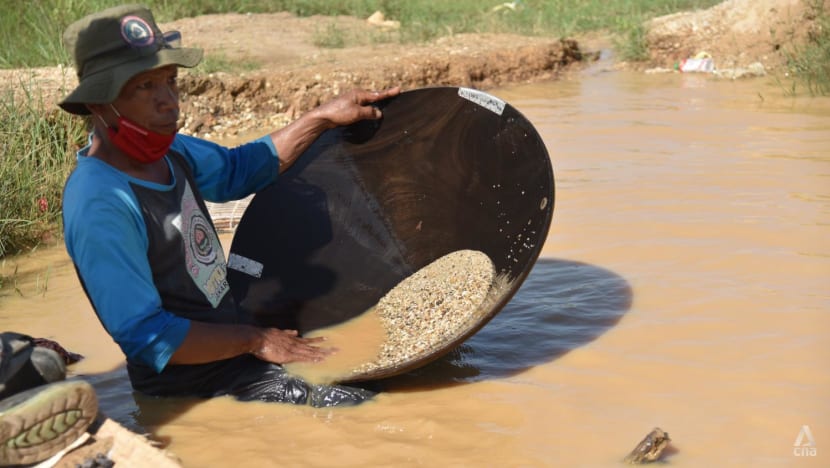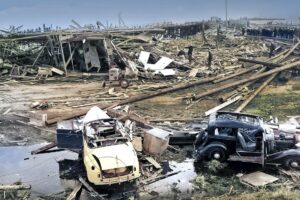Most people prefer to relax on weekends but diamond miner Salim, 47, does not have the luxury.
On a scorching hot Sunday, Salim was toiling in water up to his waist, hoping that he would find a gem in Indonesia’s biggest traditional diamond mine Cempaka in Banjarbaru city, South Kalimantan.
For 25 years, he has been doing the same thing every day from 7.30am to 4pm, panning a round cone-shaped tool in a circular motion to sift diamonds from the sand.
“I don’t find diamonds every day. It depends on my luck,” said Salim who goes by one name.
“There are times when in a (whole) week, I don’t find a diamond at all,” said the miner who only went to primary school.

He might be able to find about half a gramme of gold per day as there are also gold deposits in the area.
Still, what he earns is not enough to feed his 4-year-old child and wife.
On average, he earns less than a million rupiah (US$66) per month.
Unregulated diamond and gold mining using traditional methods have been carried out by individuals in the area for years.
In addition to the issue of unstable income, there are also safety concerns as the area is prone to landslides.
The government has tried to help the miners to switch to more stable and less dangerous jobs such as farming. However, as the miners lack skills and experience, getting them to switch jobs has been a challenging endeavour.
According to Ahmad Yani, the head of Banjarbaru’s tourism agency, there are plans to convert the location into an educational site by next year for tourists to learn about traditional mining and the history of the place.
The miners would act as guides, showing tourists how traditional mining is done. It is hoped that this would also generate income for the local government, said Yani.















